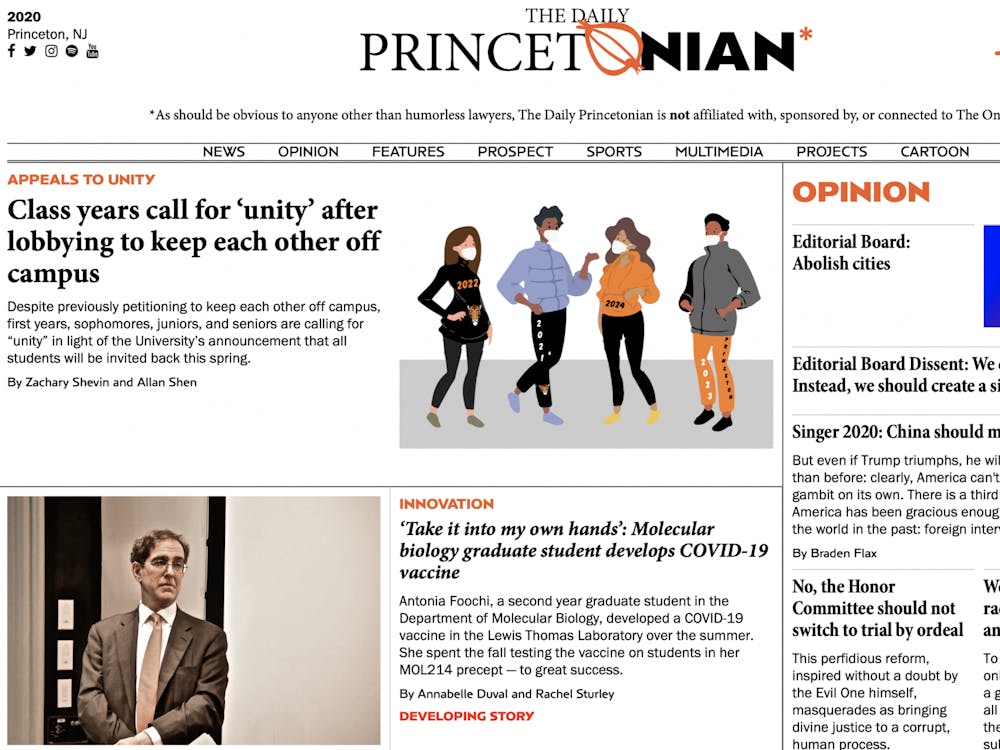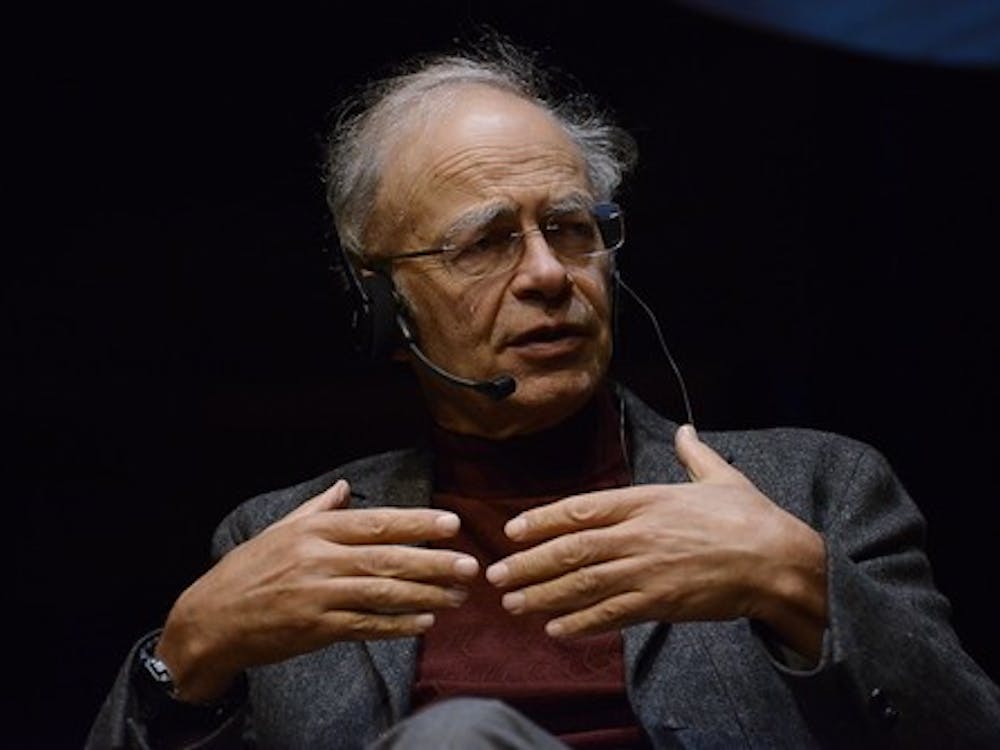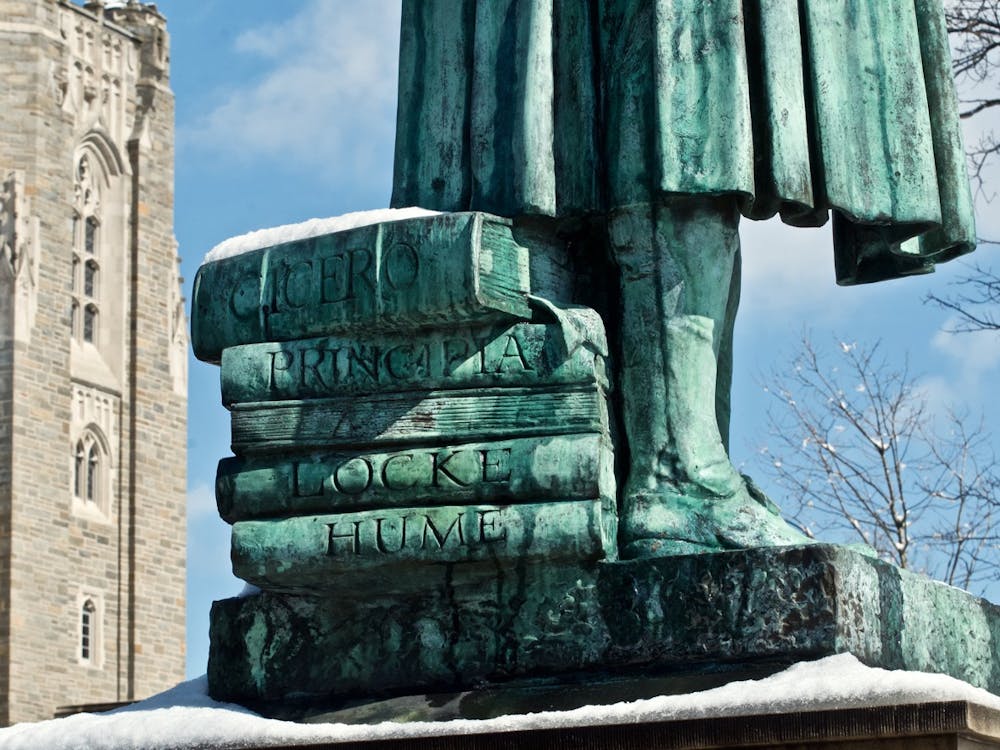The following content is purely satirical and entirely fictional. This article is part of The Daily Princetonian’s annual joke issue, which you can find in full here. Don’t believe everything you read on the Internet!
The signatories of the Editorial Board’s piece calling for the abolition of cities ask a question: “are cities good?” We argue that cities are, in fact, good — and therefore, we dissent from the Board’s argument for doing away with cities. Cities are, in fact, the most efficient structure for human existence. They are more sustainable than rural or suburban enclaves and have a lower per-person energy cost; indeed, the tight-knit nature of communal living ensures that temperature control and other energy uses are distributed far more efficiently than in any other community organization.
In fact, we dissenters believe that, rather than abolishing all of America’s cities, we should instead call on the government to establish one large city in the center of the nation, preferably in Kansas, in which every resident would live. The one-city model for existence is the most energy-efficient mode of organization — but the benefits do not stop there. The rest of the country, without cities to disrupt the landscape, could be returned to untouched wilderness or more efficiently converted to agricultural or industrial purposes, to be reached by bullet trains.
Having one city would ease the partisan political divides of our country. In the words of former President Barack Obama, “There are no red states or blue states, just the United States.” With all citizens residing in one city, there would indeed not be red states and blue states; instead, we would face our political divisions and live side by side in one huge city, spanning the state of Kansas.
Concentrating every citizen within one city, in one state, would solve the problem of the Electoral College, as the popular vote in the single residential state would decide the election — thus allowing the United States to operate under the principle of one person, one vote. This method of distribution would create the most fair electoral setup that our country has ever seen.
As to our illustrious presidents, though Thomas Jefferson and his ilk may not have endorsed urban life, we may turn to another shining example of American excellence to show us the way. Teddy Roosevelt, the defender of the wilderness and the scourge of monopolies everywhere, would fully endorse a setup wherein no human settlements mar the vast expanse of the American wilderness. With no small settlements or cities to disrupt nature, America’s landscape will heal, returning it to the halcyon days of sparkling lakes and untouched forests. Hiking expeditions would be able to wander through the wilderness for miles without meeting another soul — and return home to the city, refreshed by the utter solitude of an untouched American landscape. Rather than being forced to meet people every few miles as one would in a cityless era, with all people concentrated in one city, true peace and quiet would be achievable.
To the Board’s incredibly important corgi point, spreading Americans out between cities would mean that the likelihood of living near corgi owners would be minimal. Under the one-city model, every corgi owner would live in the same city. Therefore, one’s ability to actually see and spend time with corgis in a non-internet setting would be vastly increased.
Finally, having one city would prevent the biggest problem faced by Americans today: the confusion born of people’s tendency to refer to whatever settlement is closest to them as “the city,” causing consternation if there are more than two cities in the vicinity. The solution? One city, one reference — no confusion.
The University should push the government to begin enacting the one-city model. Though it will take time and effort, there is no better way to revitalize the American landscape and rebuild the American community than to move everyone to one huge city in the country’s center. Additionally, this would solve the problem of California and New York being overrepresented in the student body, as nobody would live in California and New York anymore.
In conclusion, not only is the “one city” model for American residence the most energy-efficient, it also breeds community ties, reduces polarization, and allows each person to live out their own American dream. The dissenters call on the University community to immediately begin pushing for the formation of one huge city and the rebirth of the American way.
144th Editorial Board
Members

Madeleine Marr ’21
Jonathan Ort ’21
Elizabeth Parker ’21
Ivy Truong ’21
The Editorial Board’s initial piece may be read here.








